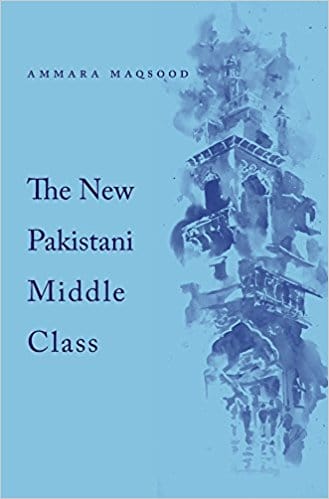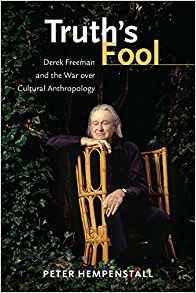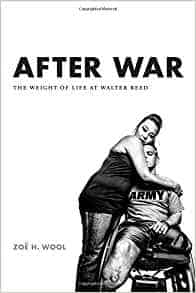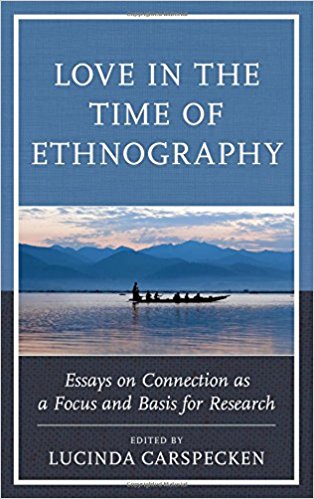Did you forget to give a Valentine’s Day present to your ears? Don’t worry, because you can still make amends through the gift of anthropology podcasts. Yes, it’s our monthly round up of the best author interviews brought to you in collaboration with New Books in Anthropology.
 The New Pakistani Middle Class
The New Pakistani Middle Class
by Ammara Maqsood
(Harvard University Press 2017)
The relationship between class and religious piety represents a theme less explored in the study of modern Islam in general, and in the study of South Asian Islam in particular. In her incredibly nimble and nuanced recent book The New Pakistani Middle Class (Harvard University Press, 2017), Ammara Maqsood, Lecturer in Social Anthropology at the University of Manchester, addresses this lacunae by offering a fascinating narrative of the intersection of religion, class, and piety among the urban Pakistani middle class. With a focus on the history and present of older and the new middle-class communities in Lahore, this book charts with remarkable analytical precision, the interaction of global and local politics, and the choreography of everyday religious life among the urban middle class in Pakistan. Theoretically sophisticated, historically grounded, and ethnographically vivacious, The New Pakistani Middle Class represents a groundbreaking contribution to the study of post-colonial Muslim societies, South Asian Islam, and to the anthropology of religion and Islam. In addition to its intellectual merits, this book also reads lyrically making it eminently usable in undergraduate and graduate seminars on religion and class, Urban Studies, South Asian Studies, Islamic Studies, and Anthropology.
Interview by SherAli Tareen
Listen here!
 Truth’s Fool: Derek Freeman and the War over Cultural Anthropology
Truth’s Fool: Derek Freeman and the War over Cultural Anthropology
by Peter Hempenstall
(University of Wisconsin Press 2017)
The debate over Margaret Mead’s and Derek Freeman’s conflicting ethnographic reports has gone on for decades. While no longer a hot topic, Mead-Freeman stands as a testament to the power and, sometimes, imprecision of social scientific inquiry. In his new book, Truth’s Fool: Derek Freeman and the War over Cultural Anthropology (University of Wisconsin Press, 2017), Peter Hempenstall (emeritus professor of history at the University of Canterbury and conjoint professor of history at the University of Newcastle) gives an unprecedented look at the life and works of a controversial figure in the making of modern anthropology. In this interview, we discuss how cultural and nationalistic biases played a role in the Mead-Freeman controversy, whether or not Freeman suffered from mental illness, and why the man is often misrepresented in the history of the discipline.
Interview by Jared Miracle
Listen here!
 After War: The Weight of Life at Walter Reed
After War: The Weight of Life at Walter Reed
by Zoe Wool
(Duke University Press 2015)
Zoe Wool‘s ethnography of rehabilitation After War: The Weight of Life at Walter Reed (Duke University Press, 2015) describes how soldiers injured in the war on terror are pulled towards a normal and idealized American life (Duke University Press, 2015). She describes how the iconic military hospital orients its patients (mostly men) towards normative masculine domestic ideals in an attempt to assimilate them to ordinary life. By closely following their lives in and out of rehabilitation (clinical and domestic), Wool shows us how impossible and fraught this “ordinary” is as the men subvert and are caught between multiple desires and realities: to be home, whole, ordinary fathers and husbands, heroes and symbols of exceptionalism. The weight of life is carried by these soldiers and veterans who are asked to do so much cultural work in the service of their nation on and off the battlefield.
Interview by Dana Greenfield
Listen here!
 Love in the Time of Ethnography: Essays on Connection as a Focus and Basis for Research
Love in the Time of Ethnography: Essays on Connection as a Focus and Basis for Research
by Lucinda Carspecken
(Rowman and Littlefield 2017)
Love in the Time of Ethnography: Essays on Connection as a Focus and Basis for Research (Rowman and Littlefield, 2017) is edited by Lucinda Carspecken, anthropologist and lecturer in the School of Education, Indiana University Bloomington. In this beautifully curated book, contributors from various social science disciplines—sociology, anthropology, education, psychology, etc.—explore different facets of a basic component of human life, love. The authors define love broadly to include affective feelings, expressions, practice and philosophy across different cultures and traditions. It not only reveals how affective feelings are deeply shaped by different cultural, social and political practice, but also examines love’s potential to transcend the boundaries between self and the other, to increase the solidarity among young activists, to overcome traumatic experiences, and to anchor the relationship between human beings and nature. While grounded in the ethnographic approach, the book also intentionally includes unconventional academic writings such as poems and autobiographies. Of particular interest is the discussion of love as a primary tenet in social science research methodology: the conceptualization of research praxis as love-in-action and the expatiation of the relationship between love and validity.
Audience who are interested in the emotional and affective aspects of human life will find this book inspiring. It will also draw attention from social research methodologists who are searching for alternative research paradigms other than the predominant post-positivist approach.
Interview by Pengfei Zhao
Listen here!
Featured photo by VVNincic (flickr, CC BY 2.0)



